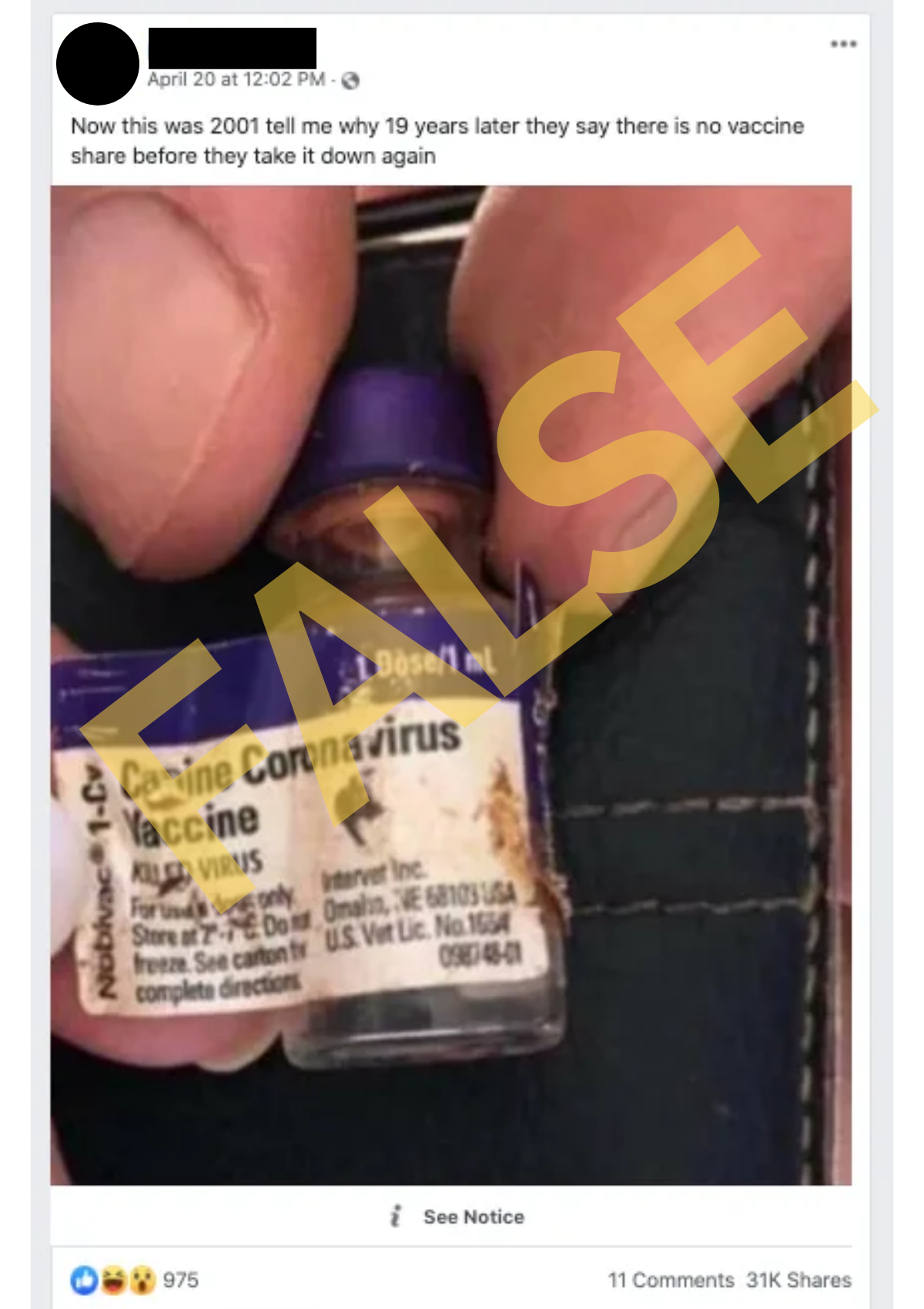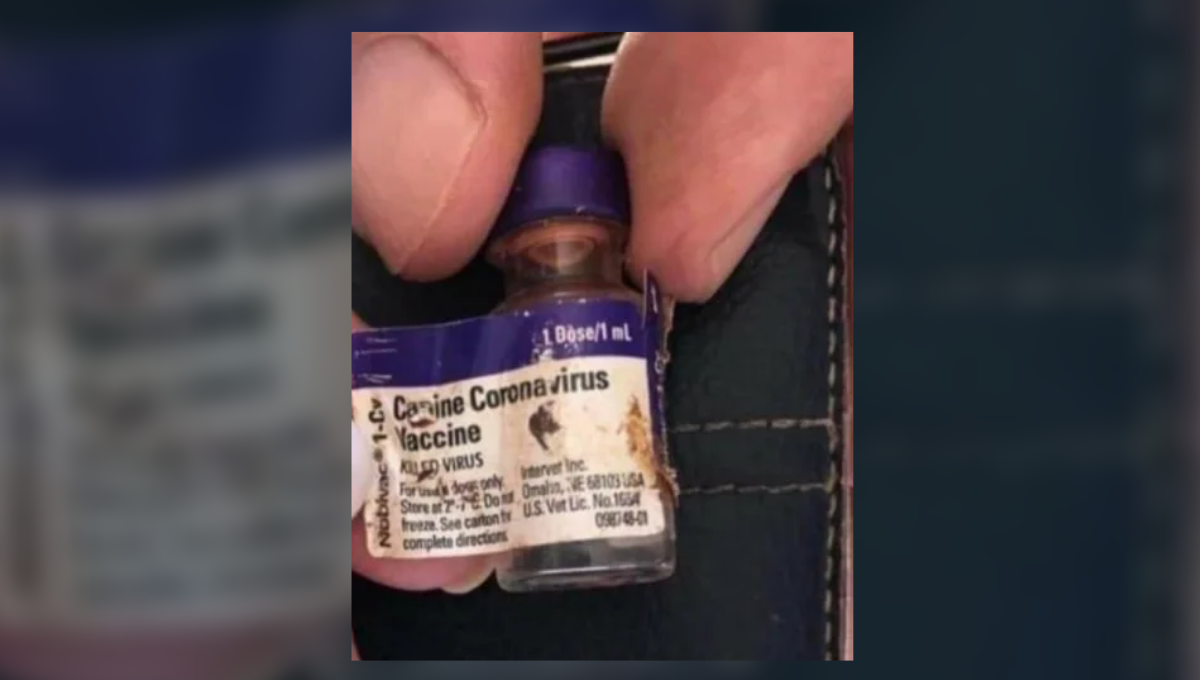In spring 2020, Facebook users circulated a post with a photograph of a small bottle labeled "canine coronavirus vaccine," suggesting that the vaccine should have been available to combat the COVID-19 coronavirus pandemic in humans.

"Now this was 2001 tell me why 19 years later they say there is no vaccine," reads part of the original post, which appears to have been deleted or removed from public viewing.
Sharing that picture and its caption, another user posted: "Canine vaccine for dogs and not humans? ... STAY WOKE PEOPLE!!"
But as of May 4, no vaccine currently exists for SARS-CoV-2, which is the coronavirus that causes COVID-19 and has killed hundreds of thousands of people globally, and prompted government-imposed lockdowns in 2020. And a vaccine to fight coronaviruses that have infected dogs won't work on COVID-19 in humans.
The confusion seems to stem from a misunderstanding of the word "coronavirus," which actually refers to a family of hundreds of viruses, not just one type of sickness. Politicians and journalists frequently — and misleadingly — used the term in the early days of the COVID-19 pandemic, when the novel coronavirus was first reported in humans in Wuhan, China, in late 2019.
But the reality is this: Most of us will catch at least one type of coronavirus in our lifetime and suffer cold-like symptoms while others may suffer more severe and sometimes fatal infections, including the Middle East Respiratory Syndrome (MERS) and Severe Acute Respiratory Syndrome (SARS). Listing all of the types of coronaviruses that can cause disease in humans, the Centers for Disease Control and Prevention (CDC) states:
Coronaviruses are named for the crown-like spikes on their surface. There are four main sub-groupings of coronaviruses, known as alpha, beta, gamma, and delta.
Human coronaviruses were first identified in the mid-1960s. [There are] seven coronaviruses that can infect people […].
One of the seven is SARS-CoV-2 — the strain for which epidemiologists are scrambling to create a vaccine to end the 2019-2020 global health crisis.
Meanwhile, some types of coronaviruses cause illness in animals, including cattle, camels, cats, and dogs. Of that type, some remain exclusively in the animal world, while others — on rare occasions — mutate in such a way that allows them to infect humans, according to the CDC. That was the case with the COVID-19 outbreak, though scientists have yet to pinpoint the exact source of the virus as of this writing.
The popular Facebook photo does show a real vaccine used to help dogs fight a specific strain of coronavirus unique to that species. The type of shot, however, is not effective in humans and will not help scientists fight against the COVID-19 pandemic.
The vaccine, called Nobivac Canine 1-Cv, is "designed to enhance the immune response and offer protection against canine coronavirus," according to Merck Animal Health, which is the manufacturer of the vaccine. The product is "approved for the vaccination of healthy dogs as an aid in the prevention of disease caused by canine coronavirus infection," which can cause intestinal and respiratory sickness.
The manufacturer's website also states canine coronaviruses "are not the same virus as SARS-CoV-2 that is responsible for causing the COVID-19 infection" — the same web page includes an image of a product that looks similar to the one featured in the viral Facebook post.
Although government officials and the news media often referred to the virus at the center of the COVID-19 pandemic as simply "coronavirus" in the early days of the outbreak, scientists have urged the use of a more accurate name. According to the World Health Organization, the virus is called SARS-CoV-2 (severe acute respiratory syndrome coronavirus 2) and the disease it causes is referred to as COVID-19.
In conclusion, the word "coronavirus" refers to a group of viruses, and any vaccine that has been effective fighting the spread of one particular strain of the virus family — including canine coronavirus, MERS, or SARS — is not necessarily going to provide immunity against other variations in this group. As of May 4, 2020 no vaccine exists for SARS-CoV-2. And for these reasons, we rate this claim "False."

